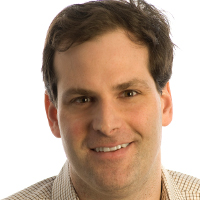There are many facets to online marketing—search marketing, social media marketing, and our personal favorite, content marketing. Which is which? Can you do all of them? Should you?
All signs point to the three converging, and they should all be managed in a single, integrated approach. Why? While SEO used to be the domain of technical experts and black-hat gurus, in a post-Panda world, the major factor for SEO success is the quality of your content. Social is similarly transformed. Initially, the gold rush for fans and followers on Facebook and Twitter included lots of catchy tactics like games, polls, and contests. But as Michael Brenner pointed out in a Marketing Prof’s chat last November, social success is now more about having consistently attractive content.
Some of the sharpest minds in online marketing have also been talking about the convergence of the “big three.” As SEO expert Rand Fishkin travels the conference circuit, he hammers on the interdependence of search, social, and content. And Lee Odden, a longtime marketing thought leader, is set to release a book this year called Optimize: How to Attract and Engage More Customers by Integrating SEO, Social Media, and Content Marketing.
To further explore this theme, we asked Movable Media’s Andrew Boer, Distilled’s Tom Critchlow, and Social Media HQ’s Nick Robinson how the big three converge within their own strategies.
 Tom Critchlow
Tom Critchlow
VP Operations, Distilled NYC
These three things are absolutely connected. SEO, “online marketing,” and “inbound marketing” are really converging as just “marketing.” Sure, there are technical aspects around SEO, search, and social that will have a big impact, but increasingly content creation and link building are becoming more like traditional marketing and PR tactics, with the emphasis being on building relationships, defining your audiences, and crafting stories that appeal to your users.
Within Distilled, these three things are tied together in our processes: The vast majority of our link building is focused on building relationships with specific audiences and creating content that appeals to them. This is not a static process and in fact is most successful when you can actively engage the community, both in crafting the content and discussing it. This discussion leads to the next content piece, etc. Whenever we create content, however, we always start with the question, “Who cares? Who (specifically) would be interested in what we’re creating, and why?” If you can nail that, then everything else is easy.
 Nick Robinson
Nick Robinson
Director of Client Services, Social Media HQ
I would say that Rand and Lee are correct for saying that content, SEO, and social media are converging. This is an interesting topic I was discussing the other day, and I think it is broken down like this:
Without content development, social media and SEO are likely to come up very short of expectations. Without SEO, you will not be attracting enough new visitors to your content to sustain a level of growth within your marketing funnel. Finally, social media binds SEO and content together. In fact, if you were to look at an inbound marketing funnel, social media is intertwined in just about every stage of a buying cycle. This is why the Internet is being called “the social web.”
Social Media HQ‘s strategy pulls people into our marketing funnel by:
1. Creating great blog content (our blog and other blogs) that is shared in social networks and is optimized for search.2. We allow people to develop a stronger relationship with us by downloading special content and optionally sharing the landing page with their social networks.
3. We nurture our relationships with these people through email and social media sharing.
4. We include calls to action within our emails for taking the next step in the relationship: getting a free assessment or buying our services.
5. Continue to serve valuable content to our customers with the option of sharing it with their social networks.
 Andrew Boer
Andrew Boer
President, Movable Media
A convergence of SEO, social media, and content quality is definitely occurring at the author level, because authors are the primary driver of quality.
Originally, search optimization occurred at the URL and domain level, and SEOs focused on getting relevant domain names and optimizing pages. Later, in the content-farm era, publishers perfected how to combine domain level optimization with article relevance (keywords)—and proceeded to generate massive amounts of content. But this approach was ultimately bad for quality, because a search engine isn’t able to tell the difference between an excellent article and one that is carefully constructed to pretend to be excellent. And the latter is much cheaper to create.
The solution that Google has been implementing is to allow optimization to occur at the authorial level, where the author’s identity, rather than the rank of the publishing domain or website, becomes the primary driver of distribution through search.
This is happening in two ways: directly, through new approaches like Google’s verified author tag (rel=author), and indirectly, through social networking. In the indirect case, authors control their own audiences and social network, and can move them to whatever location they choose. And these audiences, when engaged by their favorite authors, then begin to create positive signals (engagement, bounce rate, time on site) that further reinforce the primacy of the content in search results, creating a virtuous cycle between search and social.
What makes sense about this approach is that the author is generally the primary driver of the level of quality of a piece of content. And voila, the convergence of quality content and social cues starts to provide the correct result—the most relevant and highest quality search result.
The important consequence of this virtuous cycle is that the “publisher” (i.e. domain) of the content is now a far less relevant distribution channel, as authors begin to move their audiences independently. Brands are starting to figure this out, which is why at Movable Media we create promotion tools, metrics, and incentives for quality authors and guest bloggers to bring their audiences directly to brands, which in turn drives their search results.

